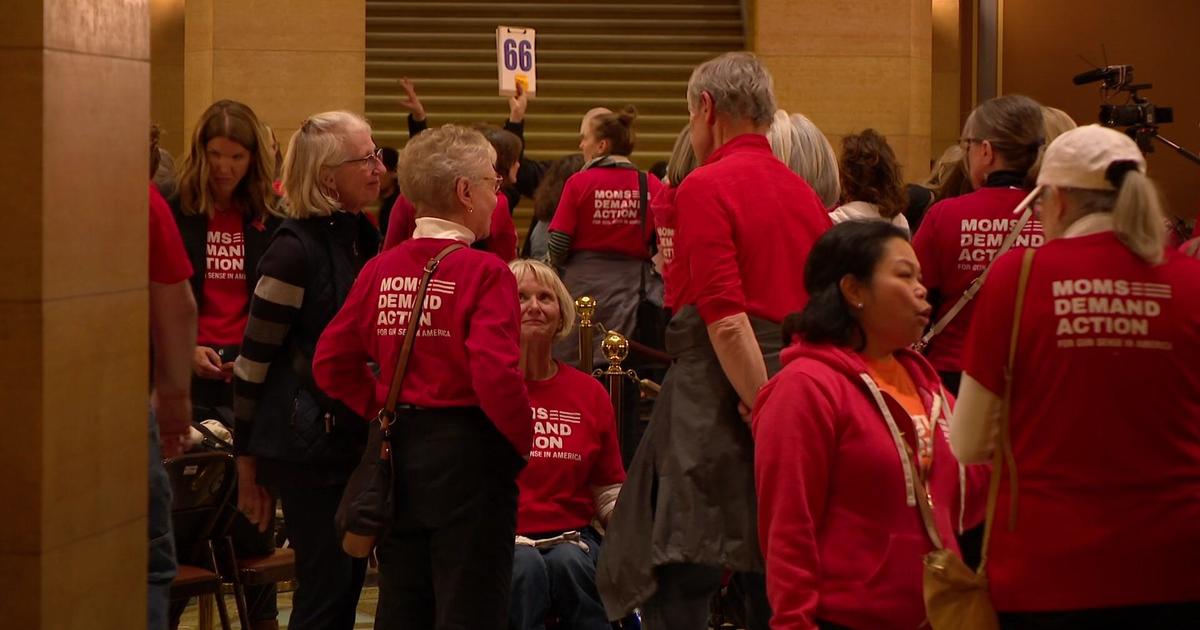Technology Offers Real-Time View Of Minn. Session
ST. PAUL, Minn. (AP) — Anyone in Minnesota with the ambition, the time and the travel resources can get a front seat to the legislative process.
The House and Senate both have public galleries, and most session days feature up to a dozen committee hearings all open to the public. The session that starts Tuesday should provide a good show: Democrats fully run the Capitol for the first time in years, and there are likely to be hot debates over tax increases, legal gay marriage, gun laws and plenty of other interesting issues.
But for those without the time, the money or the inclination to hang out at the statehouse, the Internet offers increasingly real-time access to the legislative process. From live feeds of floor debates and committee hearings, to the growing number of legislators and other participants who actively post to Twitter and Facebook from the Capitol, online portals give anyone with Internet access a window into the process of making laws.
"This process can be intimidating for the vast majority of people who aren't around it every day," said Lee Ann Schutz, assistant director of public information services for the Minnesota House of Representatives. "What we're trying to do is make it more personal, more approachable, because we feel an informed public is essential."
The House and Senate information offices, nonpartisan operations that steer away from political agendas, recently unveiled a redesigned website for the Minnesota Legislature with many tools aimed at easier remote access to the legislative process. Users who go to http://www.leg.state.mn.us will find:
— Links to live video feeds of floor session, committee hearings and press conferences, as well as archived audio and video recordings.
— Daily calendars of legislative meetings, and calendars of bills subject to be considered by the full House and Senate.
— Phone, email and mailing contacts for every member of the Legislature, as well as information about bills they're sponsoring, committee assignments and press releases they issued.
— Extensive information about the hundreds of bills that are introduced every session, including lists of bill introductions; their full text as well as summaries; bill databases searchable by legislative author or topic; and a "MyBills" function that allows users to sign up for email updates whenever there's legislative action on bills they want to follow.
— Daily summaries, prepared by writers in the public information offices, of significant developments in the Legislature.
Legislative watchers seeking a more quirky view of the process can also sign up to follow the many state lawmakers who maintain accounts on Facebook and Twitter. Nearly every lawmaker has a Twitter account; some rarely use them, and many mostly post links to press releases or newsletters. But many lawmakers now regularly post their own, unfiltered observations — sometimes right from the floor of the House or Senate.
In addition, dozens of statehouse journalists, lobbyists, legislators and political operatives and other observers tweet about the session. One quick entry point is to search under the frequently used hash-tag (hash)mnleg.
"I'll throw things out on Twitter often, maybe an opinion I have that's not that strongly held, to see what kind of reaction I get," said Rep. John Lesch, a St. Paul Democrat and frequent tweeter. "Often in politics, people count support or opposition based on how many people raise their hands in a given room. That can let a vocal minority outshout a tepid majority. Twitter is a way to get around that."
Lesch said he's had to learn to be careful about what he tweets. In recent years, more than one state lawmaker has faced an ethics complaint for things they tweeted about a colleague during a heated floor debate.
Typically, the greatest influence at the Capitol is wielded by motivated interest groups who employ lobbyists to push agendas at the Capitol. But lawmakers and their watchdogs alike insist that input directly from the public often plays an outsize role in shaping legislation and affecting its outcome.
"There's still nothing like being face to face," said Rich Neumeister, a longtime fixture at the Capitol who lobbies as an individual on privacy, civil liberties, open government and other issues. Neumeister said that two years ago, he finally started using social media and other technology to aid his one-man operation. It's helpful, he said — but still no match for the real thing.
"Emails, calls, electronic contact — that does help," Neumeister said. "But it's still not a replacement for getting down there and hollering, talking, BSing, letting the person know — in a respectful way — how you feel."
(© Copyright 2012 The Associated Press. All Rights Reserved. This material may not be published, broadcast, rewritten or redistributed.)



